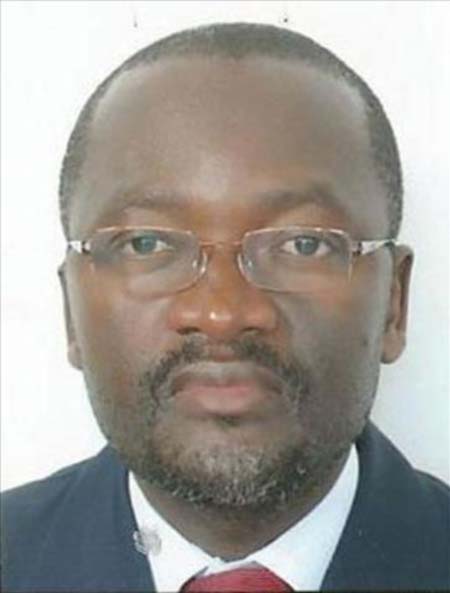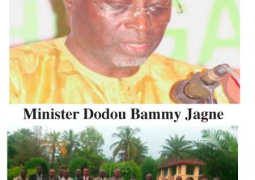
When the case was called, A.M. Yusuph representing the state told the court that his witness was in court and was ready to proceed.
However, the defence counsel, L.S. Camara, told the court that it was for the cross-examination of PW1.
The trial judge went through the records, and told counsel that it was for continuation of Mendy’s evidence-in-chief.
Continuing his testimony, Gabriel Mendy said he did a financial review from 2008 to 2013 to establish the closing balance, so that Faisal Bojang would take over as the financial attaché.
He said when he came back to The Gambia he prepared a report for the Ministry of Finance.
Mendy told the court that he would recognize the report through his signature.
Shown to him, the witness, after looking at the document for a while, told the court that the report he prepared was a single document, but he was seeing two documents.
Meanwhile, under cross-examination, defence counsel L.S. Camara reminded the witness that he told the court, on 14 January, that the handing over notes at the Gambian embassy in Paris were signed by the financial attaché, Saikou Jaiteh, head of chancery, one Mrs Sock, and the accused person (Ousman Badjie) himself.
The witness agreed.
“I am putting it to you that the accused person never signed that handing over,” counsel said.
“I had said that if my memory serves me right, and afterwards I had investigated and confirmed that the accused did not sign.”
“Are you familiar with the hierarchy of authority in the foreign embassy in The Gambia,” counsel asked.
“Yes,” replied the witness.
“Tell the court who the financial attaché is answerable to,” counsel requested.
“The financial attaché is answerable to the head of Chancery who is responsible for the finances, but in the case of France, it was the deputy head of mission because there was no head of chancery,” the witness said.
“The deputy head of mission in the case of France at the time was different from the post of an ambassador?” counsel asked.
“Yes,” the witness replied.
“Do you know who the deputy head of mission is?”
“The deputy head of mission was Mrs Sock.”
“Are you familiar with the Foreign Service Regulations?”
“Some of them,” replied the witness.
“But you are familiar with the regulation number 1224?”
“Yes,” replied the witness.
“What does the number 1224 concern?”
“It is a delegation of responsibility. The management and coordination of the day-to-day activities of the mission delegated to the Embassy by the PS Ministry of Foreign Affairs,” the witness told the court.
“Do you know who the financial attaché is answerable to under the Foreign Service Regulation?”
“It’s technically to the head of chancery, and in the event that the deputy head of mission is responsible for the finances then it is him,” said the witness.
“In the case of finances, who was responsible for the finances at the time?”
“It is Saikou Jaiteh,” responded the witness.
“In the event that the deputy head of mission is overseeing the financial attaché, who is the overall head of finance?”
“It is the deputy head of mission,” said the witness.
“Who has the hierarchal authority over Faisal Bojang under the foreign service regulation?”
“Under the FSR, it is the head of chancery, but in the case of France there was no head of chancery at that time; so it was the deputy head of mission,” the witness told the court.
The case continues on 10 March 2015.


